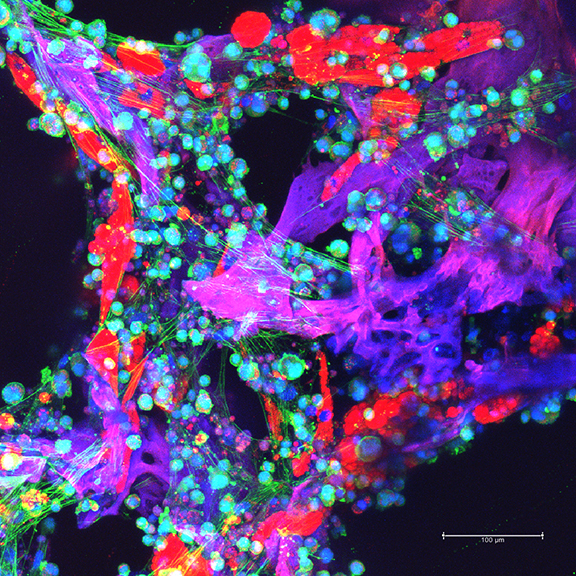Research to Enhance Patient Care
From our laboratories to the bedside, research is an essential part of Maine Medical Center’s mission. Our curiosity and determination are opening new doors in the understanding of disease processes that ultimately develop into better diagnostics and treatments, offering new hope to patients.
MaineHealth Institute for Research (MHIR) is already one of the most innovative research organizations in the nation. By focusing on the future, and with philanthropic support, we can position ourselves to enhance the continuum of research to benefit patients throughout our region.
Research has its benefits
Now more than ever, it’s important that we acknowledge the crucial role that research plays within the field of health care. The research happening every day at MaineHealth Institute for Research is making MMC a better hospital and improving Maine’s economy by:
- Introducing new drugs, devices, and treatments to our patients before they are widely available
- Providing participation in national clinical trials so patients can stay in the state to access them
- Attracting some of the brightest and best-trained physicians and scientists
- Sustaining Maine Medical Center’s role as a leader in healthcare quality and innovation
- Nourishing Maine’s growing biomedical and biotechnology economy and creating high-quality jobs
Research is a tradition at Maine Medical Center
For more than 150 years, biomedical discovery has played an increasingly important role in the mission of Maine Medical Center. Federally-funded research has taken place at Maine Medical Center since the mid 1950’s and set the stage for early lifesaving innovations such as open-heart surgery and dialysis. The hospital’s long-term commitment to research has helped make us one of the finest hospitals in the nation.
By raising private gifts to supplement federal/state grants and other revenue, our scientists and physicians can continue to work together to solve our most challenging medical issues.
To support the research of world-class scientists – who are moving closer to improving the health of our communities and solving some of their most pressing medical issues including cancer, heart disease, and other medical conditions – please contact us today.
Recent cutting-edge research
Vector-borne Illnesses
A small percentage of deer ticks in Maine carry Powassan virus (POWV), a tick-borne illness that can cause encephalitis – a rare viral infection of the brain. Scientists at MHIR’s Vector-Borne Disease Laboratory are investigating whether or not habitat type plays a role in POWV transmission. The different habitat types currently being examined are: open field, edge, forest with sparse, native shrub, and forest with invasive species. The lab’s work will help better understand the disease risk in our region and could lead to better prevention measures in the future.
Cancer
Multiple myeloma is a cancer that causes blood cells to grow uncontrollably and crowd out other blood cells in the bone marrow, leading to low blood cell counts, deterioration of bone, infection, and organ shut-down. Although there are many therapies for myeloma, there is no cure. Funding from an NCI grant is supporting new research to examine how fat cells create that drug-resistant protein. By figuring out how tumor cells evade cancer drugs, we are discovering their vulnerabilities and engineering novel ways to target the cancer.

Cardiovascular
CTHRC1 — a gene discovered in the MHIR lab— helps cells to use nutrients more efficiently. People with high levels of CTHRC1 in their cardiovascular system have been found to have far higher survival rates after cardiac arrest. Researchers at MHIR are studying if this gene could provide cardiovascular protection after a heart attack and perhaps prevent heart failure by allowing the heart to survive on fewer nutrients while it’s healing. The research could lead to new therapeutic approaches to improving heart health.
Rural health
MMC was awarded a $12.8 million Centers of Biomedical Research Excellence (COBRE) grant to develop a statewide research and care network in Maine to address barriers associated with limited resources, expertise and access in rural areas.
The network is starting with the support of four clinical studies that aim to:
- Improve rural patient outcomes after cardiac arrest by creating a standard best practice protocol for care
- Determine if antibiotic ceftriaxone after cardiac arrest will help improve outcomes after resuscitation
- Looking into how the types of white blood cells patients have in their bloodstream after cardiac arrest may impact their recovery
- Telemedicine research that supports rural hospitals in the rapid recognition of newborns who need treatment with therapeutic hypothermia to protect the brain

